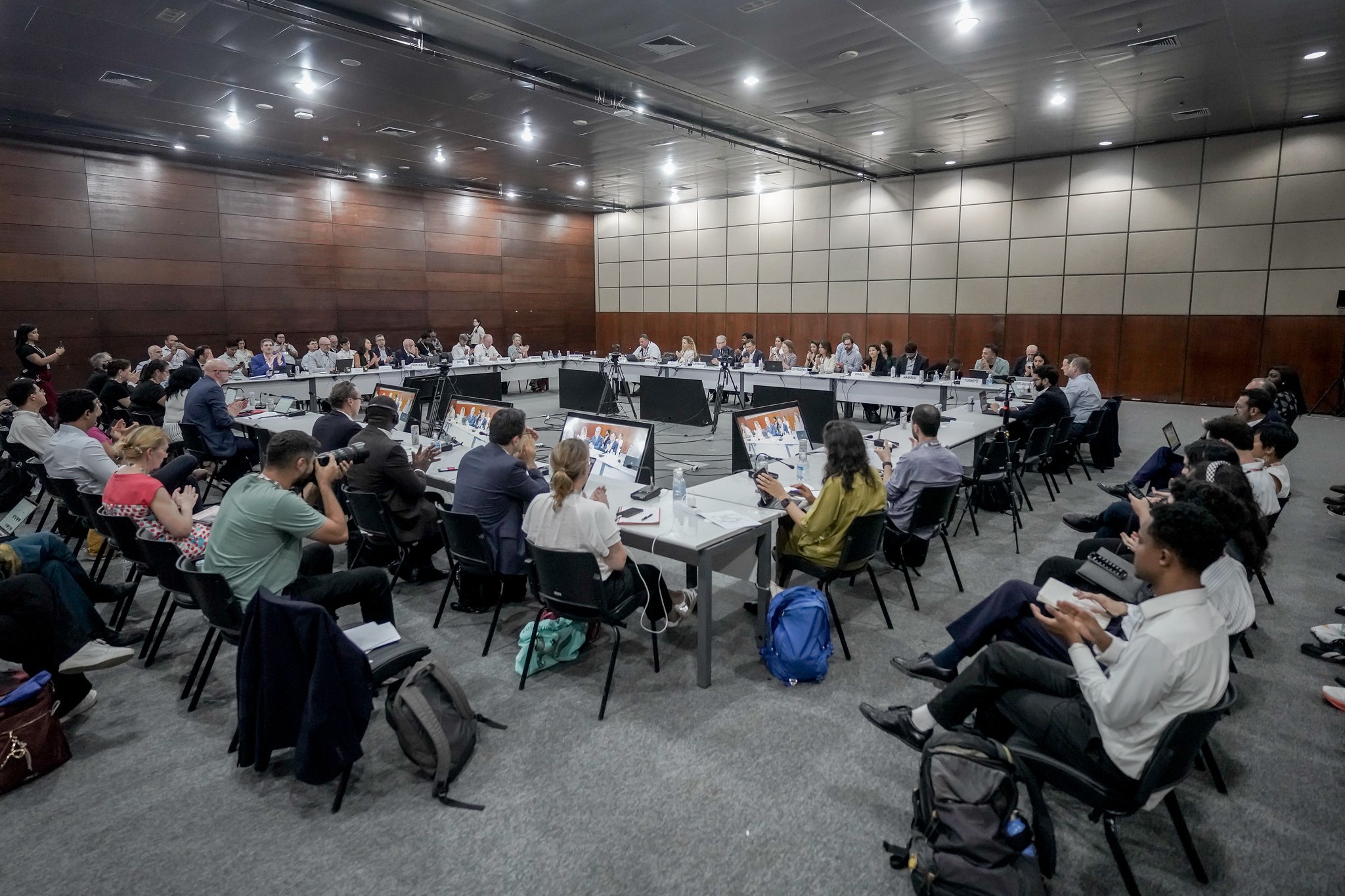COP30 launches Belém Declaration and strengthens the global green industrialization agenda
The initiative brings together countries and organizations to accelerate the energy transition and advance a sustainable global economy

Por Edson Carvalho e Bianca Leão/COP30
With the support of 35 countries, international organizations, and initiatives, the Belém Declaration for Green Industrialization was launched on Friday, November 14, during a leaders’ meeting at COP30. The document outlines environmental, economic, and social goals aimed at reshaping the global landscape, driving technological innovation, and establishing a sustainable model of economic growth. To achieve these aims, countries commit to shared efforts and coordinated actions that accelerate the energy transition, modernize industry, and expand opportunities for developing nations within the green economy.
“Climate goals must be matched by real economic transformation,” stated Brazil’s Vice President Geraldo Alckmin. “Green industry is about advancing sectors and creating future-oriented jobs, ensuring that all countries, especially those in the Global South, can lead and benefit from this new era of sustainable prosperity,” he added, underscoring the need to align climate ambition with development.
COP30 CEO Ana Toni echoed that message. “Green industrialization is now an irreversible agenda, and we need to work together to ensure that all countries advance in the best way possible,” she said, welcoming the fact that the issue swiftly moved from negotiation to concrete action. “We can bring other countries with us, engage additional industries, and work with governments and lawmakers to understand the framework in each case,” she added.
Gerd Müller, Director General of the United Nations Industrial Development Organization (UNIDO), emphasized the historic nature of the moment. “We are connecting climate goals to concrete actions for industry, mobilizing innovation, investment, and inclusion. UNIDO is proud to support this effort alongside partners to ensure not only industrial decarbonization, but also development, job creation, and technological progress,” he concluded.
More jobs and social inclusion
According to Júlia Cruz, Secretary for Green Economy, Decarbonization, and Bioindustry at the Brazilian Ministry of Development, Industry, Trade, and Services (Ministério do Desenvolvimento, Indústria, Comércio e Serviços), the green industrialization agenda must also be a commitment to social inclusion. Cruz stressed that the transition needs to account for the people whose lives and livelihoods are directly tied to industrial sectors and their energy systems. “We must ensure jobs and real benefits for these communities. Without a development strategy for them, they will look for other ways to survive, including in criminal markets such as illegal logging or mining,” she said.
The Belém Declaration outlines actions to promote cohesion and coordination among the various COP initiatives focused on transforming the industrial sector, thereby aligning and accelerating work across the agenda. The commitment also acknowledges other essential efforts for green industrialization by seeking financial and technical support to implement sustainable policies on a global scale. The document remains open for countries and organizations that wish to join these efforts.
